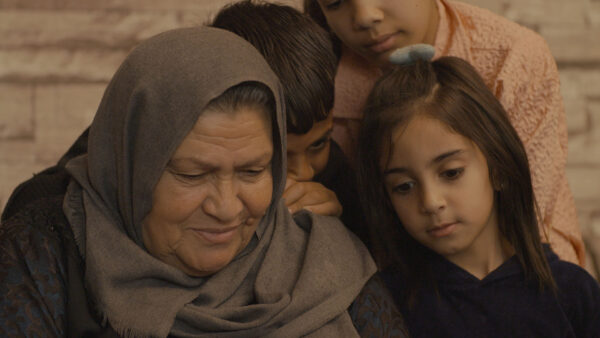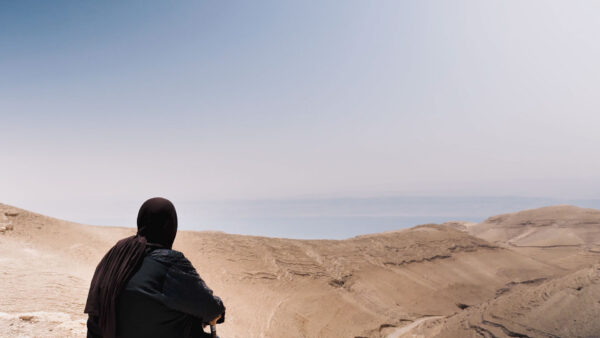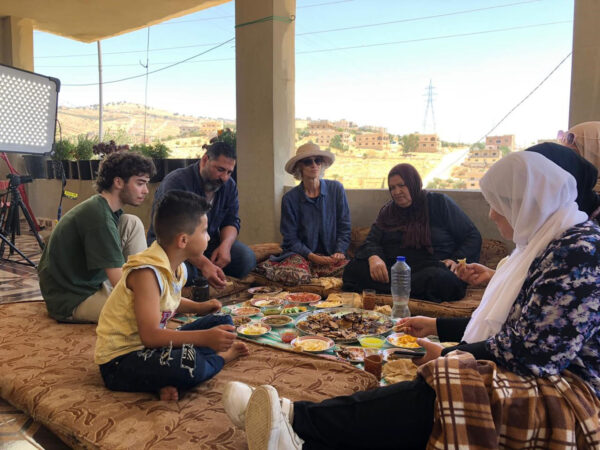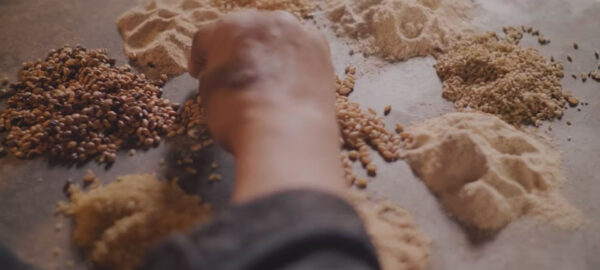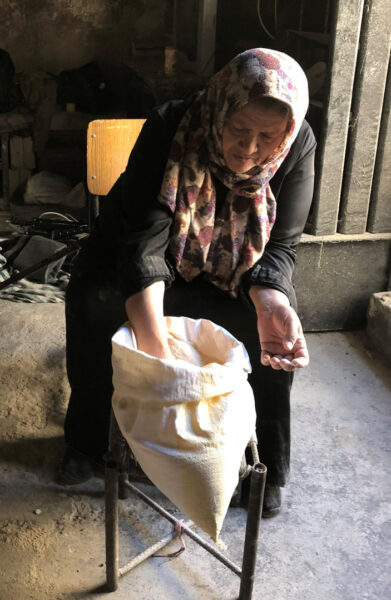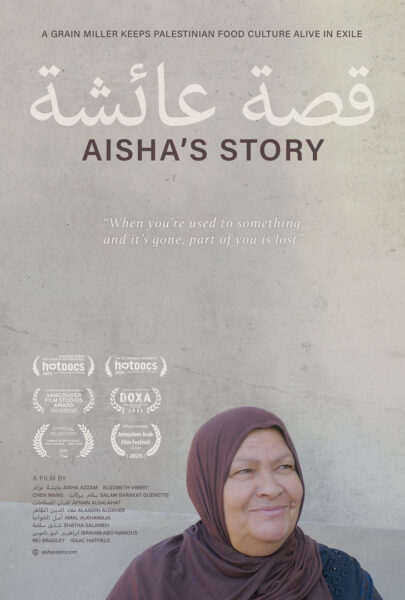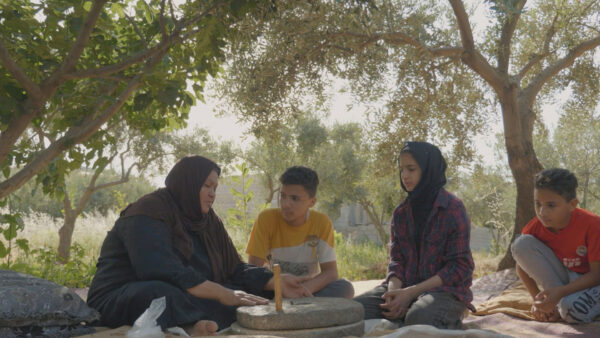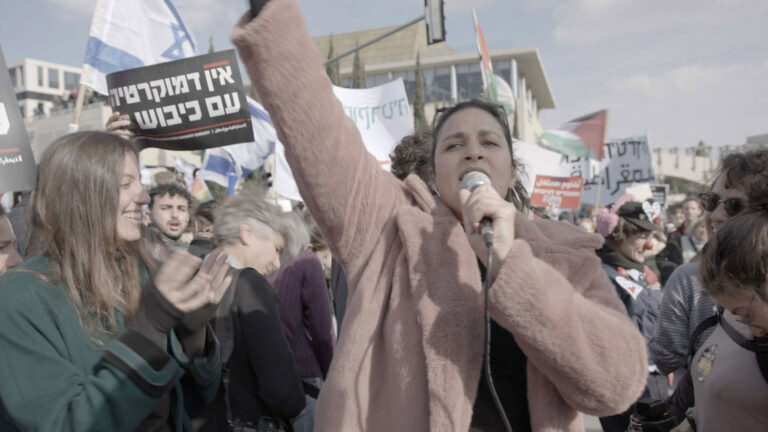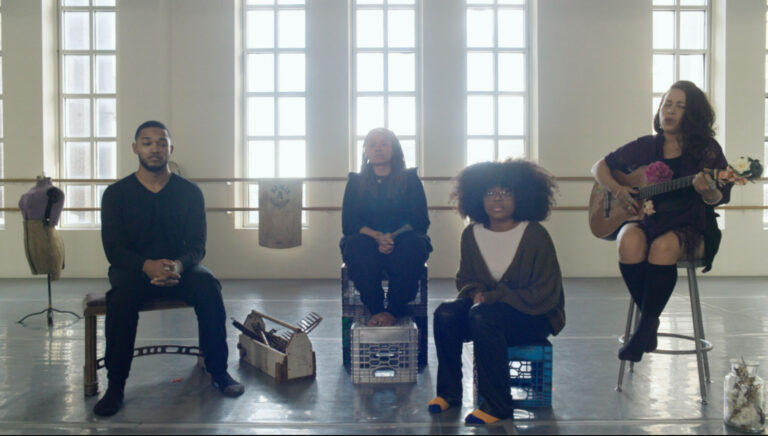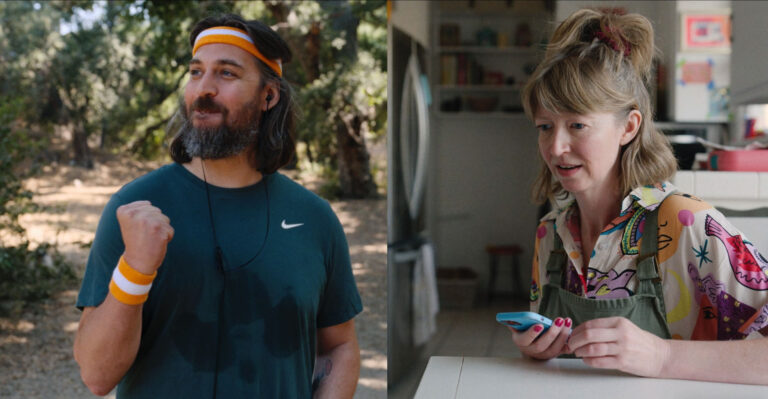“Food is the most precious part of Palestinian heritage.” Aisha Azzam and her husband started their family grain mill in Baqa’a refugee camp, Jordan, 35 years ago. She treasures her role in safeguarding culture by milling the wheat, grains, and herbs essential to Palestinian cuisine. Through food, Aisha traces the story of Palestinian displacement and rebuilding family and community in a refugee camp. Harvesting, milling, and cooking ground the film’s arc of displacement, longing, steadfastness and resistance. “Food is what keeps us together as Palestinians,” Aisha says.
Aisha has been conjuring feasts since the day she volunteered, pregnant with her first child, to feed the local mosque. Maftoul, maqloobeh, musakhan, kousa mahshi — food and feasts punctuate the story of Aisha’s life. She teaches her grandchildren to use the grinding stone her grandmother carried with her when the older generations were forced to flee in 1948. She and an old friend prepare a feast with their grandchildren, squabbling good-naturedly over micro-local expressions of Palestinian cuisine. She cooks with her daughters “hand by hand,” although several are blind. Aisha’s challenges are many. She meets them with humour, sumud (steadfastness), and food.
Aisha’s story intimately captures the loss, beauty, love and resistance that define Palestinian lives.
